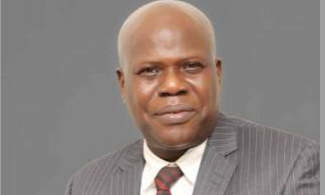
Likewise, bandwagon fallacy is also sometimes called the appeal to common belief or appeal to the masses because it’s all about getting people to do or think something because “everyone else is doing it” or “everything else thinks this. Literally "Argument to the People"): Using an appeal to popular sentiments and assent, often by arousing the feelings and enthusiasm of the multitude rather than building an argument. It is a favorite device with the propagandist, the demagogue, and the political profiteer. An example of this type of fallacy is currently in the air.
Bandwagon is a fallacy based on the assumption that the opinion of the majority is always valid: that is, everyone believes it, so you should too. It is also called an appeal to popularity, the authority of the many, and argumentum ad populum (Latin for "appeal to the people"). Argumentum ad populum proves only that a belief is popular, not that it's true. The fallacy occurs, says Alex Michalos in Principles of Logic, when the appeal is offered in place of a convincing argument for the view in question.
Likewise, bandwagon fallacy is also sometimes called the appeal to common belief or appeal to the masses because it’s all about getting people to do or think something because “everyone else is doing it” or “everything else thinks this. Literally "Argument to the People"): Using an appeal to popular sentiments and assent, often by arousing the feelings and enthusiasm of the multitude rather than building an argument. It is a favorite device with the propagandist, the demagogue, and the political profiteer. An example of this type of fallacy is currently in the air.
Furthermore, fallacies are statements that might sound reasonable or superficially true but are actually flawed or dishonest. When readers detect them, these logical fallacies backfire by making the audience think the writer is (a) unintelligent or (b) deceptive. It is important to avoid them in your own arguments, and it is also important to be able to spot them in others' arguments so a false line of reasoning won't fool you. Committing flaws in reasoning is in fact very common.

Often times, fallacies just pass unnoticed. But sometimes they are intended, whether because the arguer is uninterested in being reasonable or wishes to induce someone else to make a rational error. A logical fallacy is a flaw in reasoning. Logical fallacies are like tricks or illusions of thought, and they're often very sneakily used by politicians and the media to fool people. We need to take full responsibility for evaluating the grounds for our beliefs. Adopting a belief merely because someone else simply told us it was true is a way of avoiding good logical and critical thinking.
On the other hand, religiousity, sentiments and emotion shared similar inclinations; first, religiosity could be associated with a stronger desire for emotions that strengthen foundational religious beliefs (i.e., more awe and gratitude and less pride). Second, religiosity could be associated with a stronger desire for emotions that promote prosocial engagement (e.g., more love and empathy and less anger and jealousy). Two cross-cultural studies supported the first hypothesis. Religiosity was related to desire for emotions that strengthen religious beliefs, but not to desire for socially engaging or socially disengaging emotions.
Flowing from the foregoing, I will like to use my personal observations and experiences in the issues of governance and politics to validate the purpose of these assertion. In the year 1998 and '99, yours truly, was privileged to witness first-hand knowledge and experience with the transition between the last military government and the present political journey (4th republic). I had a stint in the transition government of Gen Abubakar Abdulsalam 'GCFR' (RTD), I had worked briefly with a fantastic erudite and younger fellow in person of 'now Gov Abubakar Sanni Bello (Abu-lolo) and subsequently, the Obj/Atiku inauguration committee under Prof Tunde Adeniran among others.
Therefore, having been in the system and given my resentments of how the gladiators including the past administrations have unwittingly laid a very bad precedence over time. I wish to unequivocally state, that, the problems of our beloved country Nigeria, is deeper than the sentiments around one man's capacity or the rhythm of "I no get shoes or I no get shoes" or "I no dey give shi-shi" it is fundamental and systemic issues - it is about building strong institutions and laws that cannot be circumvented. It is embedded in the series of articles widely published "Mind Restructuring". This is the crux of the matter, not any saintly disposition of any of the gladiators.
ARISE 'O COMPATRIOTS
Richard Odusanya is a Social Reform Crusader and the convener of AFRICA COVENANT RESCUE INITIATIVE ACRI.